What is Pernicious Anemia?
Pernicious anemia is an anemic form due to the lack of vitamin B12. Once quite widespread and difficult to treat, this particular anemia has earned the adjective pernicious for its ability to cause serious damage and important harmful effects. Fortunately, pernicious anemia has now become quite rare and easily treatable.
Causes
Pernicious anemia can develop for a variety of reasons, but most of the time the problem is caused by deficiencies in the absorption of vitamin B12. In particular, pernicious anemia is often caused by the absence of the so-called intrinsic factor, a glycoprotein essential for correct absorption of the aforementioned micronutrient. This substance is secreted by the parietal cells of the stomach, which in about 90% of patients with pernicious anemia are attacked and destroyed by abnormal antibodies, which can also directly affect the intrinsic factor, preventing its binding with the vitamin or with the intestinal receptor. . In these cases, we speak of autoimmune or type A atrophic gastritis, a chronic inflammatory process that affects the gastric mucosa, reducing its functionality.
Atrophic gastritis can also have non-immune origins, for example due to the perpetuation of chronic gastritis of various kinds, including infection by helicobacter pylori (type B atrophic gastritis).
Risk factors for pernicious anemia
Adult and elderly age, family history of pernicious anemia, Nordic ethnicity, simultaneous presence of endocrine autoimmune disorders, such as Addison's disease, chronic thyroiditis, Graves' disease, hypoparathyroidism, hypopituitarism, myasthenia gravis, secondary amenorrhea, type I diabetes, testicular dysfunction , vitiligo.
Patients with pernicious anemia have been reported to have a threefold increased risk of gastric cancer.
By-Pass and Gastric Resections
Under normal conditions, thanks to the presence of intrinsic factor, vitamin B12 is absorbed in the lower tract of the small intestine, called ileus. Surgical resections of this tract can therefore lead, after years, to vitamin B12 deficiencies and the consequent pernicious anemia.
The same applies when the stomach or a portion of it is removed (gastrectomy), or when a gastric bypass is applied to reduce body weight in severely obese patients; in such circumstances, in fact, the synthesis of intrinsic factor at the gastric level is lacking.
Food shortages
Pernicious anemia due to reduced food intake has now become particularly rare; the individuals most exposed to this risk are strict vegetarians and the poor, especially the elderly (due to the lower digestive and absorption efficacy).
Vitamin B12 in Food
Vitamin B12 is mainly present in meat foods, while in the human organism it is concentrated in the liver, where stocks of a few mg cover the needs for long periods of time (up to three to five years). Not surprisingly, before that this vitamin was discovered and isolated, pernicious anemia was treated with large quantities of raw bovine liver. Today, B12 is produced in the laboratory by bacterial fermentation; similarly, small quantities are produced by some microorganisms resident in the human intestine.
Absorption of Vitamin B12
At the gastric level, in the presence of sufficient quantities of hydrochloric acid, the vitamin B12 present in food is released and readily bound to the salivary polypeptide R. Once it reaches the duodenum, this complex is dissolved by the pancreatic proteases and vitamin B12 binds to the factor intrinsic of Castle secreted by gastric parietal cells. Absorption of this complex is receptor mediated and occurs in the ileum. A very small part is absorbed by simple diffusion (about one or two percent) and this explains the usefulness of oral administrations, provided they are rather high and sufficiently close together.
Other Possible Causes
Pernicious anemia can also result from a chronic H. pylori or by the suppression of gastric acidity with anti-ulcer drugs (H2 antagonists, proton pump inhibitors).
Finally, enteric infestations by parasites (such as the botriumcephalic worm which consumes the vitamin) and the various malabsorption syndromes (resulting from celiac disease, Crohn's disease, etc.), can lead to vitamin B12 deficiencies.
Clinical Signs and Symptoms
Most patients with pernicious anemia have elevated serum levels of gastrin, a hormone secreted by the stomach to increase gastric secretion, which is generally absent or deficient in these people.
Often, in pernicious anemia, an atrophic glossitis (Hunter's glossitis) is observed, in which the mucous membrane of the tongue is smooth and reddened at the edges and at the tip. The patient complains of parageusia, that is, an altered perception of flavors.
In the course of pernicious anemia, the skin and the sclerae may take on a slight jaundice, caused by the "exalted catabolism of red blood cells, with an increase in serum levels of indirect bilirubin. The color is, however, tending to pale and the patient complains of difficulty concentrating," hypochlorhydria or achlorhydria, irritability, headache, depression, balance disturbances and decreased mental faculties (difficulty concentrating, memory deficit).
In the most severe and inadequately treated forms, pernicious anemia also affects the nervous system, with widespread paresthesia especially in the extremities and reduced perception of pain.
Pernicious anemia falls into the category of megaloblastic anemias, as it is characterized by the presence of red blood cells, of significantly increased volume, with a short life span and in a much lower number than normal.
Care and Treatment
See also: Pernicious Anemia - Drugs for the treatment of Pernicious Anemia
The therapy uses intramuscular injections of vitamin B12, generally separated by an interval of about 30 days.
Alternatively, or jointly, it is possible to resort to oral administration of significantly higher doses than the daily requirement.

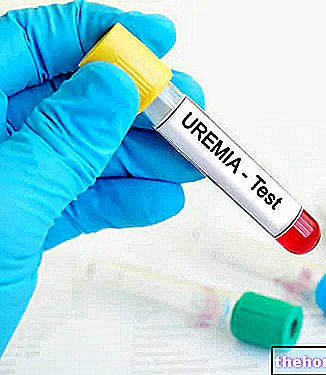
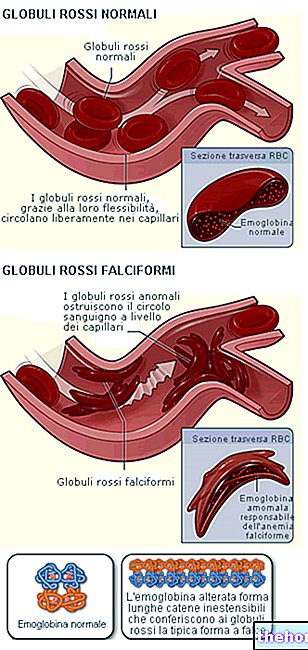
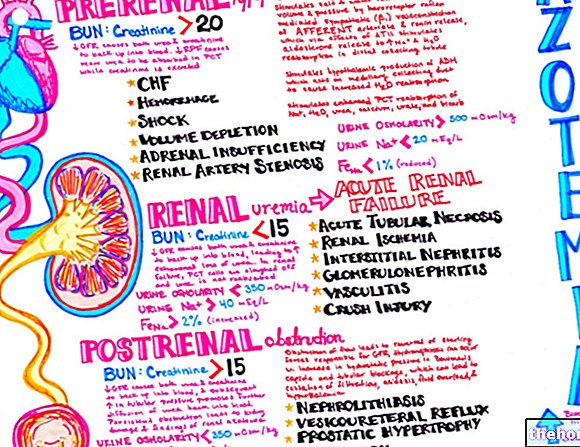
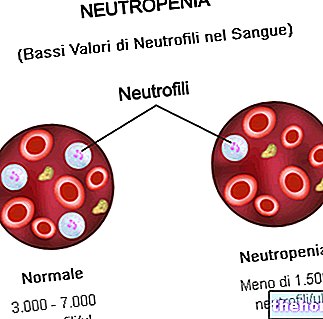
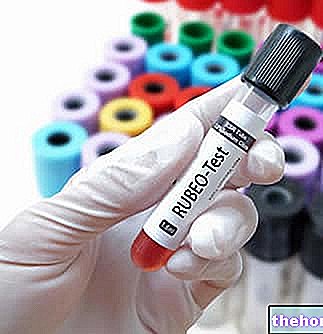
-quando-preoccuparsi.jpg)





















